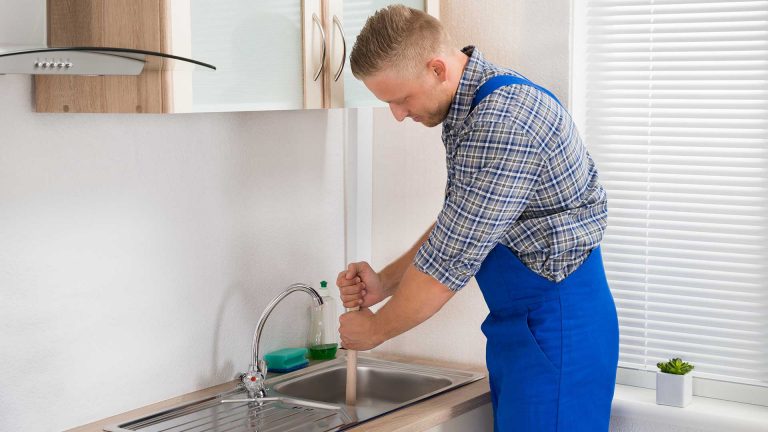Clogged drains are a common issue in many home. You too might have been a victim of this plumbing problem. You turned on your sink faucets to clean your dishes only to not that water is not flowing down the drain. When taking a shower in the bathroom, you realize flooding is the real deal. The drainage ports are not letting water through to the sewer.
While clogging can start as a minor issue, it can turn into a costly and a nightmare disaster in your house. The issue can cause backup, dampness, and even electric faults if not managed quickly. The best way to handle the problem is understanding the main causes and fix them. So, if you are struggling with frequent clogging, here are 5 fixable causes to consider:
Pouring greasy and oily element on your sinks
Certainly, you love taste meals. You deep fly chicken, sausages, and chips. Also, you use oil in preparing every meal in your house. After eating the meal, you pour the oil and fat residues down the drain via the sink. You have no worries since it is in liquid form
If this is your habit, it might be the reason of regular clogged sinks in your home. Oil and fat can shift from liquid to solid forms. Though you poured them in liquid form, they solidify and get attached to the drainage walls. As you continue with the trend, the solid oil residue become a stronger block and hinder water from flowing to the drainage system.
You can fix this problem by simply refraining from pouring greasy, oily, and fatty elements on your sink. If you are already struggling with the problem, you can consider pouring hot water and see whether it will solve the issue. In case the problem persist, consider calling a plumber offering blocked drain services in your area to handle it.
Human hair and furry elements
Certainly, you always enjoy cleaning your head while taking a shower. Sometimes, weak and overgrown hair breaks off and fall on the bathroom floor. Also, your furry pet may spend time in the bathroom and leave some fur behind. You do not care collecting it.
As you take a shower, water pushes these hairy waste down the drain. It feels good that water helped you get rid of such waste. What you do not know is that they will become the next disaster. Hair and fur are a major cause of blocked drains in many homes.
Hair combines with other solid debris and attach on the drain pipe walls. This creates a strong barrier that hinder waste water from flowing down the drains. Since you cannot avoid hair in your bathroom, consider installing a hair strainer. This way, you will refrain any hair getting to the drain and save yourself from the potential disaster.
Soap residues
Soap residue is another fixable cause of clogged drains. Popularly known as soap scum, it can concentrate on your shower and laundry rooms. This scum reduces the drainage pipe diameter. If not cleaned, it combines with other solid debris and block your drainage system. You can avoid this issue by using laundry liquids in place of soaps.
Food waste poured on sinks and toilet bows
Despite having a garbage disposal in your sink, some food waste will find their way to the drainage system. Tea leaves and other debris can cause clogging issues since they do not breakdown while on the drain.
While you can resolve the issue by detaching the garbage disposal from your sink and cleaning it, snaking can be necessary. However, regular garbage disposal cleaning and refraining from placing tea leaves residue in your kitchen can be a permanent solution to this problem.
Investing in a Saniplus toilet can provide an additional solution to this problem, as its powerful macerating system effectively breaks down food waste and prevents clogging issues caused by tea leaves and debris.
Cotton wastes
Like hair and fur, cotton debris do not break when on the drainage system. They combine with other dirt and block waste water from flowing through the drains. You can fix it through snaking or plunging the block drains.
Doing all these simple fixations can help you resolve the problem and save money.

